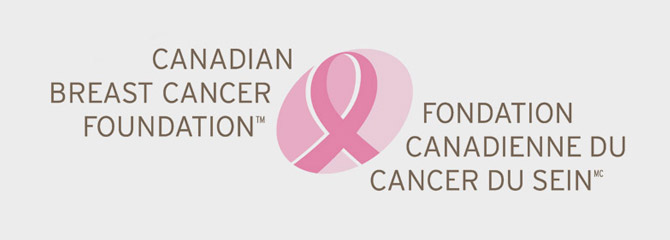 The Canadian Breast Cancer Foundation (CBCF) Ontario has granted 27 new research projects and fellowship awards totaling $7.9 million in new funding for researchers who are currently working on breakthrough studies for breast cancer. The announcement was made during the Paint Canada Pink Week which is taking place until Friday, August 22nd.
The Canadian Breast Cancer Foundation (CBCF) Ontario has granted 27 new research projects and fellowship awards totaling $7.9 million in new funding for researchers who are currently working on breakthrough studies for breast cancer. The announcement was made during the Paint Canada Pink Week which is taking place until Friday, August 22nd.
CBCF’s goal is to invest in innovative projects that advance knowledge about breast cancer, as well as improve prevention, detection, treatment, and support practices for individuals living with the disease. It is one of the largest non-governmental research foundations in Canada.
“Breast cancer is a disease that 1 in 9 women will experience in her lifetime,” explained the CEO of CBCF-Ontario region, Sandra Palmaro. “Funding recommendations come from our expert peer review panel, who select research that will have the greatest impact on the lives of those affected by breast cancer.”
Dr. Angel Arnaout of the Ottawa Hospital Research Institute is one of the researchers who received an award from the CBCF, and is researching the process that keeps cancer cells alive despite chemotherapy or radiation treatment, which is called autophagy or “self-eating.” Her research is designed to test the safety of chloroquine, an existing drug, in the reduction of tumor size and help in the prevention of autophagy.
“Rather than spending time and money developing a new drug, we should be testing a drug already known to be safe to humans,” Dr. Arnaout explained. “If successful, this will provide a new and safe treatment for breast cancer patients that can immediately be used in the clinic.”
[adrotate group=”3″]
Dr. Jennifer Jones from the University Health Network in Toronto also received an award for her study of physical activity in women with breast cancer. She is currently testing a method to reinforce long-term exercise through a health-coaching program called iMOVE for smartphones. Following the belief that physical activity reduces the risk of breast cancer recurrence, Dr. Jones wants to examine the fitness, quality of life, and physical outcomes of the program on previously inactive breast cancer survivors.
“Through the use of smart phone technology, women who have experienced breast cancer will have ongoing connectivity to their iMOVE coach,” said Dr. Jones. “This constant support will hopefully encourage long-term exercise, which will be beneficial towards the health of these women and reduce the risk of breast cancer recurrence.”
Also a CBCF grant recipient, Dr. Christopher Nicol of Queen’s University in Kingston is experimenting on solutions for the prevention of the disease, as he is testing drugs normally used to treat diabetes in order to manipulate a protein responsible for the storage of fats and sugars from the human diet, called PPARgamma. The main goal is to demonstrate that the progression of breast cancer may be stopped by activating the PPARgamma present in the body.
“Breast cancer patients mainly die from the growth and spread of their tumours,” says Dr. Nicol. “This project will help identify how PPARgamma in surrounding cells prevents the spread of tumours.” In the future, either drugs or diet that turn on PPARgamma could be used to prevent breast cancer growth and development.

